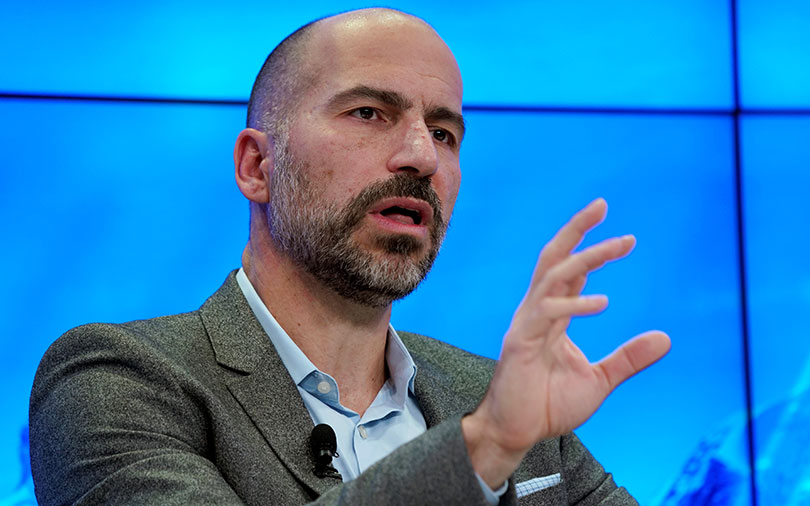
Uber CEO says car ownership bigger threat than Ola, vows to invest more in India


Uber's chief executive officer Dara Khosrowshahi said on Wednesday that the ride-hailing company will continue to invest in India as it readies to go public next year.
While he did not provide specifics about the investment, Khosrowshahi said India would be a core market for the company as well as a second tech centre as it has a huge talent pool of engineers who can improve Uber products.
India accounts for more than 10% of Uber’s trips globally, but is not yet making money.

“We expect to lose money in Southeast Asia and expect to invest aggressively in terms of marketing, subsidies etc,” Khosrowshahi said during his maiden visit to India since taking over as chief executive of Uber.
"We have been growing very fast for the last couple of years. I want to be careful about our growth strategy in a way that will ensure that we don't sacrifice innovation," the CEO said, adding that Uber had barely scratched the surface of the $5 trillion transportation sector.
SoftBank had picked a 15% stake in Uber last month. The Japanese conglomerate is also an investor in Ola, which is Uber's biggest competitor in India.

Khosrowshahi said that SoftBank's investment focus was far from pitting the rivals against each other, but rather in seeing how Uber can transform the mobility space.
He said he sees Ola as healthy competition.
"Our competition is not with Ola but against car ownership. We are planning to run bus systems of an entire city and we could reach that stage in five years," Khosrowshahi explained.

SoftBank’s backing had opened up the possibility of combining Uber with other ride-hailing assets the Japanese group owns across Asia. SoftBank also has a stake in Singapore-based Grab.
At the time of the investment, SoftBank said it wanted Uber to focus on growing in the United States, Europe, Latin America and Australia - not Asia, which has been among the most costly and competitive regions for the ride-services firm, a source had told Reuters. Khosrowshahi's comments on Wednesday appear to contradict that view.
The CEO also said that while the company continues to lose money in Southeast Asia, he expects growth to come from deals and acquisitions in the region. He said, however, that the company's short-term goal was to focus on organic growth.

Future plans
Khosrowshahi said that Uber was planning to soon expand to other product portfolios.
"We can bring the same algorithims to work in different spaces such as moving things (logistics). We are already moving food via our EATS division," he said.

Khosrowshahi said he wanted to see Uber become the 'Amazon of Mobility'.
Uber, which has a valuation of around $68 billion, is already running a freight logistics business in the US and wants to test out autonomous trucks soon for the same..
The company has also started offering electric bikes via its platform by partnering with a US company.

In India, Uber announced last month that it would be bringing back UberAUTO, the autorickshaw service it discontinued two years ago.
Khosrowshahi said that he wants to tap all customers boarding and de-boarding transporation systems such as railways or ferrys and later expand to flying cars.
Earlier, he had said that his company was working on a flying cars project which will see trials in five years and a commercial launch in ten years.
When asked about the issues plaguing the company before he took over, Khosrowshahi said that he wanted Uber products to be stronger for the local population and will invest his efforts in doing so during his term as CEO.
Khosrowshahi, who took the helm in August after former CEO Travis Kalanick was asked to step down amid a litany of regulatory problems, driver and consumer scandals and court cases, pledged to make a clean break with past practices that have lead to accusations of a toxic work culture.
He maintained that he had good relations with Kalanick and said that he had always received support from him.
Uber has also faced bans, restrictions and protests around the world as it disrupts conventional taxi services .
"We have been growing so fast that we didn't talk to regulators of different countries where we operate. All companies should talk to regulators for things to move forward," the CEO said.
(With inputs from Reuters)
